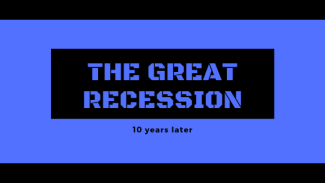
Revisiting the Great Recession, Part 2
By Gary Silverman, CFP®
It’s been 10 years since the last Financial Crisis. Last time in this column, I mentioned how the business community looked for ways to profit from the government’s push to get more people qualified to buy homes. Although they knew they’d need to lend to folks they didn't prefer to lend to, the banks and mortgage companies also knew they wanted to make as much money as practical from the endeavor.
A lot of people think this is horribly greedy. I’ve got news for you. In general, all companies want to make as much profit as practical from every endeavor. The ones who do this the best make more money, employ more people, and have stocks that grow. Depending on just how ridiculous this aspect of business (some would say the main purpose of business) gets is what determines whether ambition and hard work turn into greed. It’s also highly dependent on the opinions and viewpoint of the beholders.
Now remember my warning from last time: My coverage here is full of my opinions and oversimplifies matters a lot. Okay, with that said, let’s look at what happened on the business side of the start of the Financial Crisis.
Many think that banks lend money to borrowers and make money by charging interest. Well, the front and back sides of that are true. If you want to buy a house and don’t have the money to pay cash you will borrow it from someone. That someone is giving up the use of their money and wants to be compensated. This is why you pay interest on the money borrowed. There is a risk that you might not pay off the loan, so the lender secures the loan with the right to get the house from you if you stop paying.
Front side: Money from lender. Back side: Interest (and repayment) from borrower.
The thing is there are a lot more people who want to buy houses than money the banks have to lend. But don’t fear, there are investors out there who like to loan money in exchange for interest. Now, they don’t like finding all the itty-bitty (by Wall Street standards) loans, doing all the paperwork, surveying property, talking with the borrowers, etc. They just want to loan money and get interest.
See where we are going here? Instead of banks taking their own reserves, loaning it, and keeping the loan on their books collecting the interest, they sell off the loan. They will make one-time money from both the borrower and investor who are buying the loan rather than a long-term income stream from the interest payments.
While it may seem that adding a step to the process costs more (since both the bank and the investor stand to make a profit in the deal), this is mitigated by having more money available for lending, creating greater competition among those wanting to loan money. This tends to make loans more available and cheaper.
So far, so good. Then came the greed. More about that next time. Gary Silverman, CFP® is the founder of Personal Money Planning, LLC, a Wichita Falls retirement planning and investment management firm and author of Real World Investing

